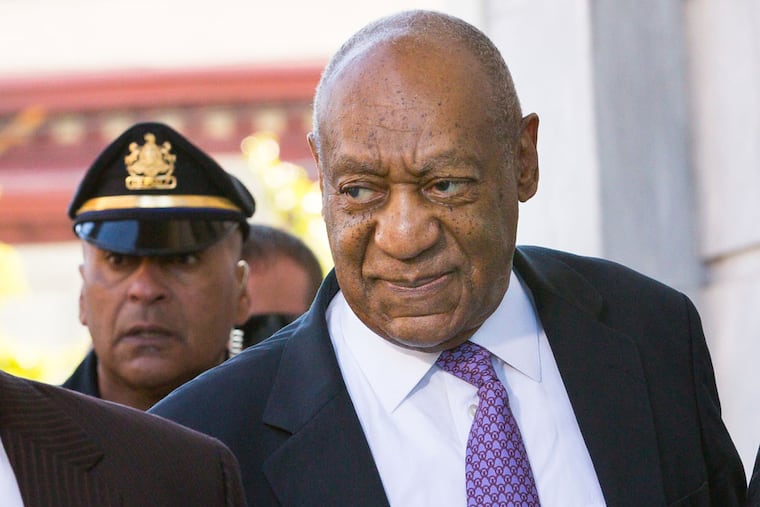Freeing Cosby on narrow grounds disappoints lawyers seeking clarity on testimony by abuse victims
“Mr. Cosby got his win, but most everybody else got nothing that can be used in almost any other case in the universe," said Jules Epstein, a professor of evidence at Temple University’s law school.

In writing the majority opinion that tossed out the conviction of Bill Cosby, Pennsylvania Supreme Court Justice David N. Wecht noted that ”the circumstances before us here are rare, if not entirely unique.”
His dramatic reversal did not deal with the facts at trial or whether Montgomery County prosecutors properly used the testimony of five women who said the comedian had drugged and abused them in years and decades earlier.
Instead the court focused on a “due process violation” — the fairness of bringing a criminal complaint against Cosby after a previous district attorney had assured Cosby that he would not be criminally charged. This maneuver by DA Bruce L. Castor Jr. prevented Cosby from refusing to testify under Fifth Amendment protections in a civil lawsuit brought by Andrea Constand, the former Temple University employee who said Cosby had drugged and raped her at his house in 2004.
While lawyers were looking to the state Supreme Court for clarity on presenting evidence of other acts in such cases, instead the court focused only on the broken pledge not to prosecute by the District Attorney’s Office.
» READ MORE: LIVE: Bill Cosby released from prison after Pa. Supreme Court overturns sexual assault conviction
The majority of judges found that, due to that breach, Cosby’s rights had been violated and it was necessary to bar retrial, given the severe harm Cosby suffered.
Lawyers were disappointed that the court failed to address the question of whether the judges should have allowed the testimony of those five women.
Their statements had been allowed in to help prove a pattern of behavior by Cosby, and to show that the assault of Constand was not an isolated incident. The admissibility of this evidence was a key issue in Cosby’s appeal to the justices.
“Those of us in Pennsylvania who practice or teach law really needed an answer here, because this is a damned messy area of the law,” said Jules Epstein, a professor of evidence at Temple University’s law school.
“Mr. Cosby got his win, but most everybody else got nothing that can be used in almost any other case in the universe.”
» READ MORE: ‘It’s a dark day’: Reaction as Bill Cosby released from prison after conviction overturned
David Rudovsky, a defense lawyer who teaches evidence law at University of Pennsylvania, said that ”the case itself has a life of its own. It’s raised a lot of different issues, political and legal. But for precedent and what will happen in the future, this may be a one-off case. It’s hard to envision facts like this happening again in the future.
“If it does, it tells the DA: ‘Be careful. Don’t promise more than you’re willing to give.’”
Justice Thomas Saylor, writing in dissent, said his inclination was that Cosby deserved a retrial without those five women testifying, not dismissing the case and barring it from being tried again.
But if the court had ruled on the evidentiary issue of the five women’s testimony, it would have left a door open for yet another trial, said Benjamin Lerner, a retired Philadelphia Common Pleas Court judge. “If the Supreme Court’s view is ‘We’re looking for a way to be done with this once and for all,’ then they found an issue that would enable them to say not only the conviction can’t stand, but he can’t be tried again.”
The decision in Cosby’s favor disappointed some legal experts.
“Many may perceive this ruling as he got away with it and that’s dangerous,” said Laura Beth Nielsen, chair of the sociology department at Northwestern University and a research professor at the American Bar Foundation.
“But I think the world believes these women, so I think it could be seen as sort of a technicality, a mistake.”